Posted on 12/27/2023
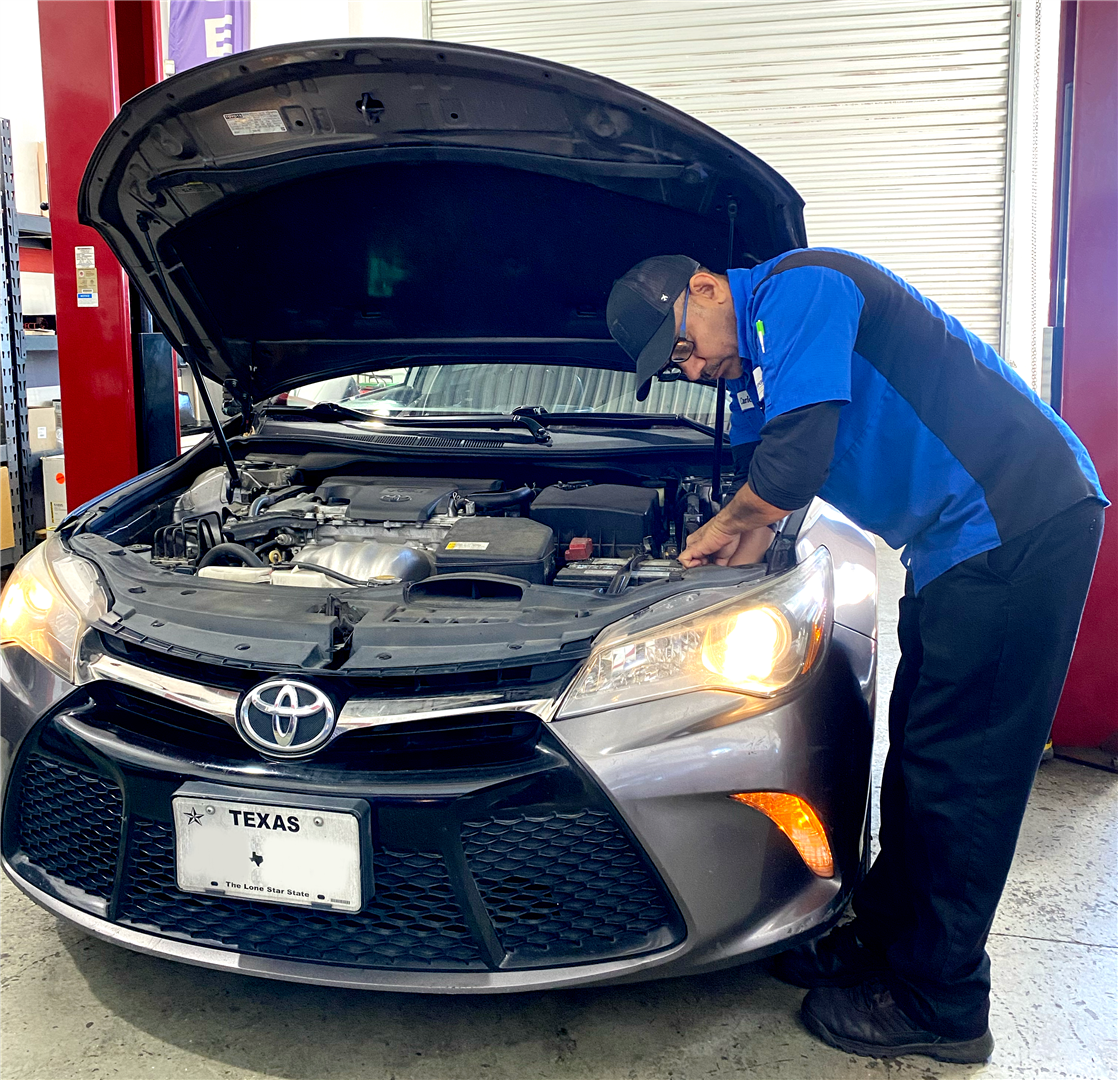
The new year is the perfect opportunity to give your car the necessary maintenance to start the year like new. A well-thought-out maintenance plan can not only improve your car's performance but also contribute to your safety on the road. In this article, we will delve into what you should take into account when maintaining your car. Kick off the year with a comprehensive inspection. Check the fluid levels, examine the brakes, inspect the tires, and ensure that all lights are in working order. Oil Change and Filter Replacement Tire TLC Battery Health Check Brake Inspection Lights and Wipers Fluid Check As we embark on a new year, let's commit to keeping our vehicles in top-notch condition. A well-executed maintenance plan not only extends the life of your car but also provides you with a sense of confidence and security on the road. Here's to a smooth and worry-free year of driving! Get your appointm ... read more
Posted on 12/20/2023
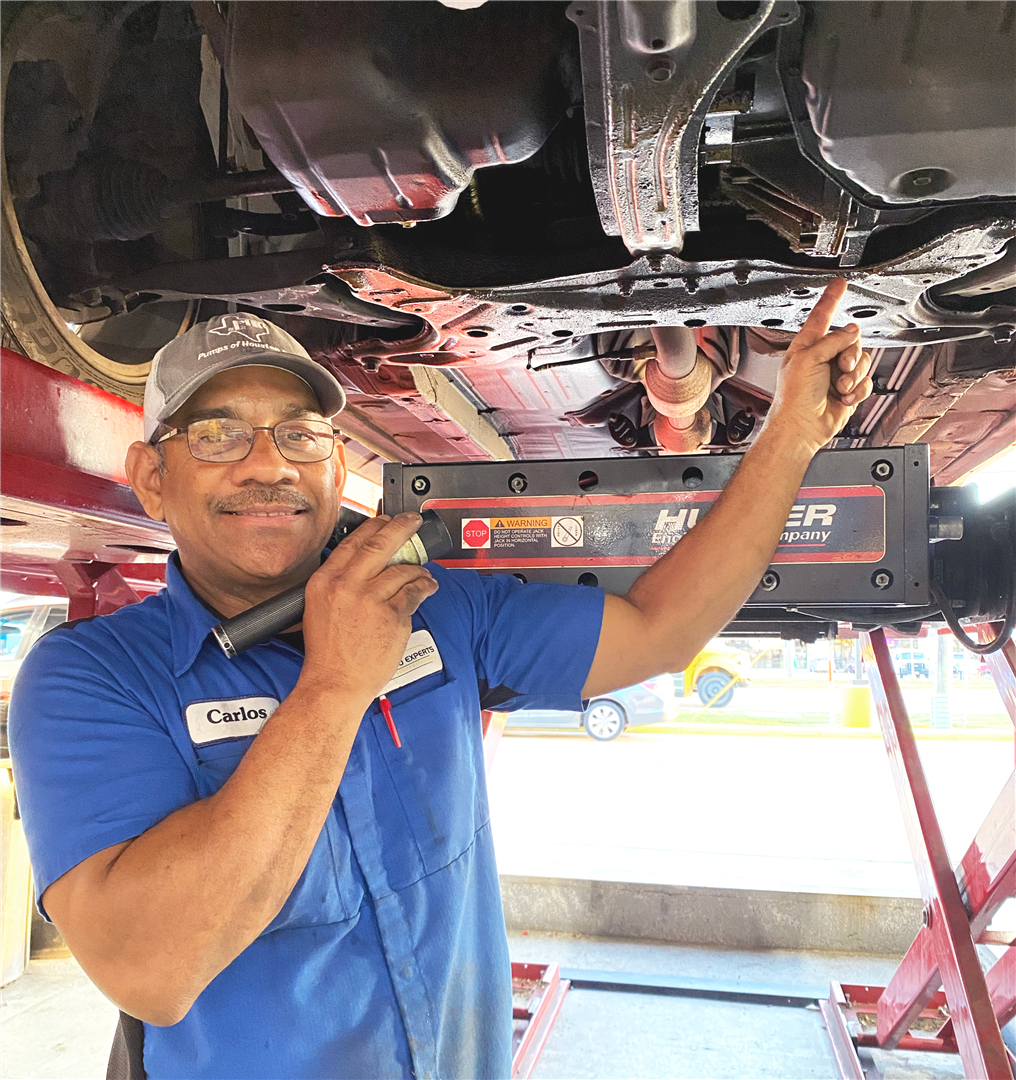
Whether your truck is your trusty workhorse or your reliable companion on adventurous journeys, proper maintenance is the key to keeping it running smoothly and efficiently. Here are five essential tips to ensure your truck stays in top-notch condition: 1. Regular Oil Changes: Regular oil changes are crucial for maintaining engine health and overall performance. Follow the manufacturer's recommendations for oil change intervals, and use high-quality oil to keep your engine well-lubricated and running smoothly. 2. Rotate tires routinely. Regularly check tire pressure, and rotate your tires at recommended intervals to ensure even wear. Properly inflated and rotated tires not only enhance fuel efficiency but also contribute to a smoother and safer ride. 3. Brake System Maintenance: The braking system is a critical component for your safety. Keep an eye on brake pad thickness and replace them as needed. Additionally, have the brake fluid checked and flushed acc ... read more
Posted on 12/15/2023
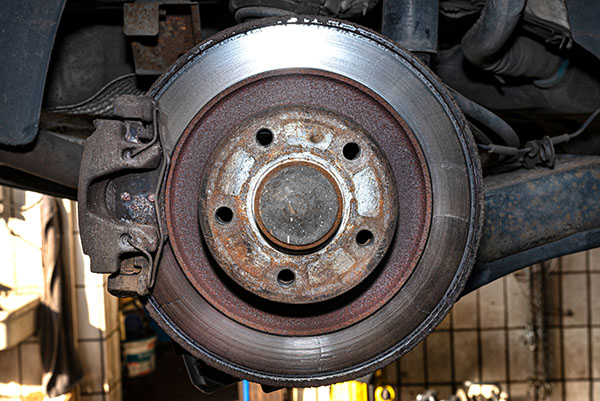
You see a red light looming ahead, or someone spontaneously swerves into the lane, in front of you. Your natural response? You reach for that trusty pedal under your foot - the brake. Yet, how much do we really know about this vital component of our daily drives? Let's delve into the intricacies of what happens when you press that pedal and bring tons of metal to a graceful halt. The Hidden Mechanism Behind a Simple Press The brake system is nothing short of a masterpiece of engineering ingenuity. Composed of several key components that work in concert, it utilizes both hydraulic pressure and mechanical force to ensure your safety on the road. Let's break it down step by step. Step 1: The Pedal The journey starts when your foot exerts pressure on the brake pedal. This seemingly mundane action trigge ... read more
Posted on 12/12/2023
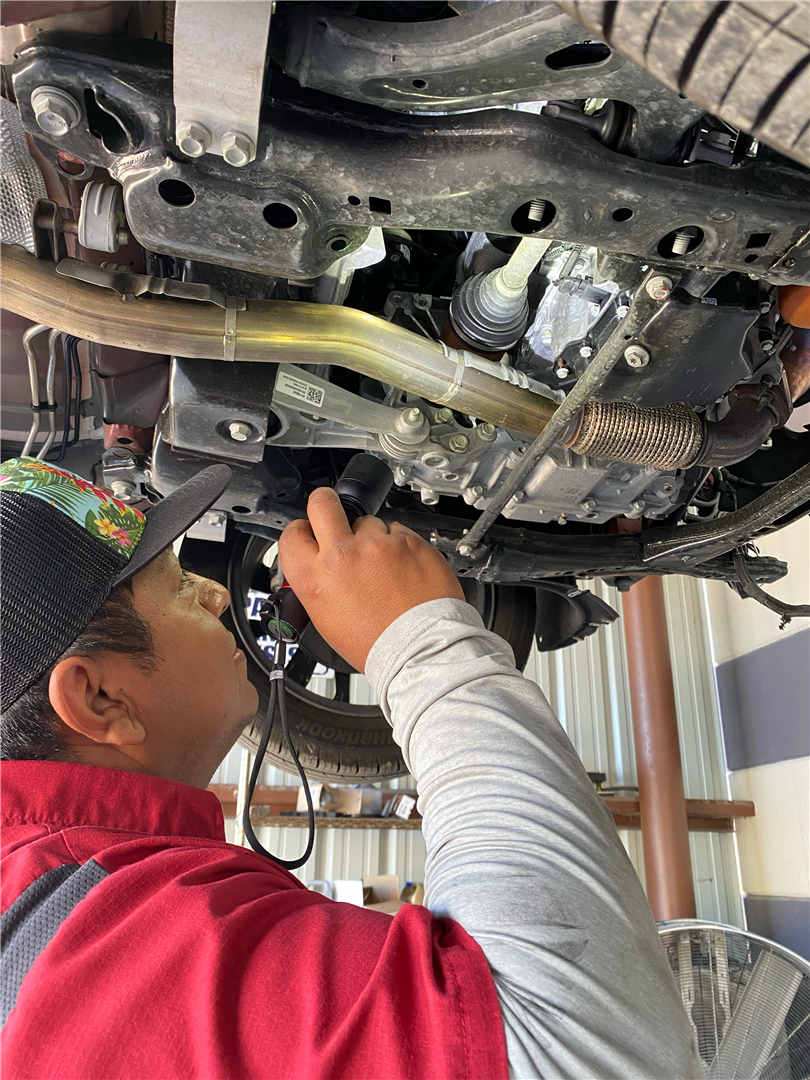
Identifying unusual sounds in your car is crucial for early detection of potential issues. Here are some common car noises and their potential meaning Squealing or Screeching Screeching and squeaking noises are Likely related to issues with the serpentine belt, accessory belts, or brakes. It’ll be prudent to get your brake pads or rotors checked, as well as the belts. Grinding Grinding noise indicates significant wear in the brake system, requiring prompt attention. You will need to get new brake pads installed, but if you delay getting a replacement, then over time, you may also need to replace the rotors and calipers. Clicking or Ticking Could signal low oil levels, valve lifter issues, or worn engine components. You should get the fluids replaced. Knocking or Pinging These irregular, metallic sounds points to potential problems with fuel quality, ignition timing, or engine knocking. Whining Whining or screeching are loud continuous, high-pitched so ... read more
Posted on 12/4/2023

An overheating car can lead to serious engine damage, so it's important to recognize the signs early. Steam or smoke coming from under the hood The temperature warning light on the dashboard is on If you notice a sweet smell, it could be coolant leaking into hot engine components If you suspect that your car is overheating, it's crucial to address the issue immediately. Continuing to drive an overheating vehicle can lead to severe engine damage. Here we will give you a guide on what to do (and not do) when your car is overheated. WHAT TO DO WHEN YOUR ENGINE OVERHEATS Turn off the engine to allow it to cool down After turning off the engine, open the hood to allow heat to escape more rapidly Safely pull over to the side of the road or into a parking lot WHAT NOT TO DO WHEN YOUR ENGINE OVERHEATS Do Not Continue Driving: Continued driving can cause severe damage to the engine Do Not Pour Cold Water on a Hot Engine: Pouring cold water on a hot engine can cau ... read more
Posted on 11/28/2023
.jpeg)
A solo journey into the mechanical realm of your vehicle is undoubtedly alluring. However, not every car repair is a DIY masterpiece waiting to happen. That's why we have prepared seven car repairs that should remain untouched by the lone garage adventurer. From the delicate work of the transmission to the core of your safety – the brake system – discover why these automotive endeavors are best entrusted to the hands of seasoned professionals. 1. Brake System Repairs The brake system, a balance of hydraulics and precision, orchestrates your vehicle's safety. An amateur brake ballet can result in compromised stopping power, turning your drive into a safety hazard rather than a smooth glide. 2. Airbag Replacement Airbags, the unsung heroes of collisions, are intricately woven into your car ... read more
Posted on 11/21/2023
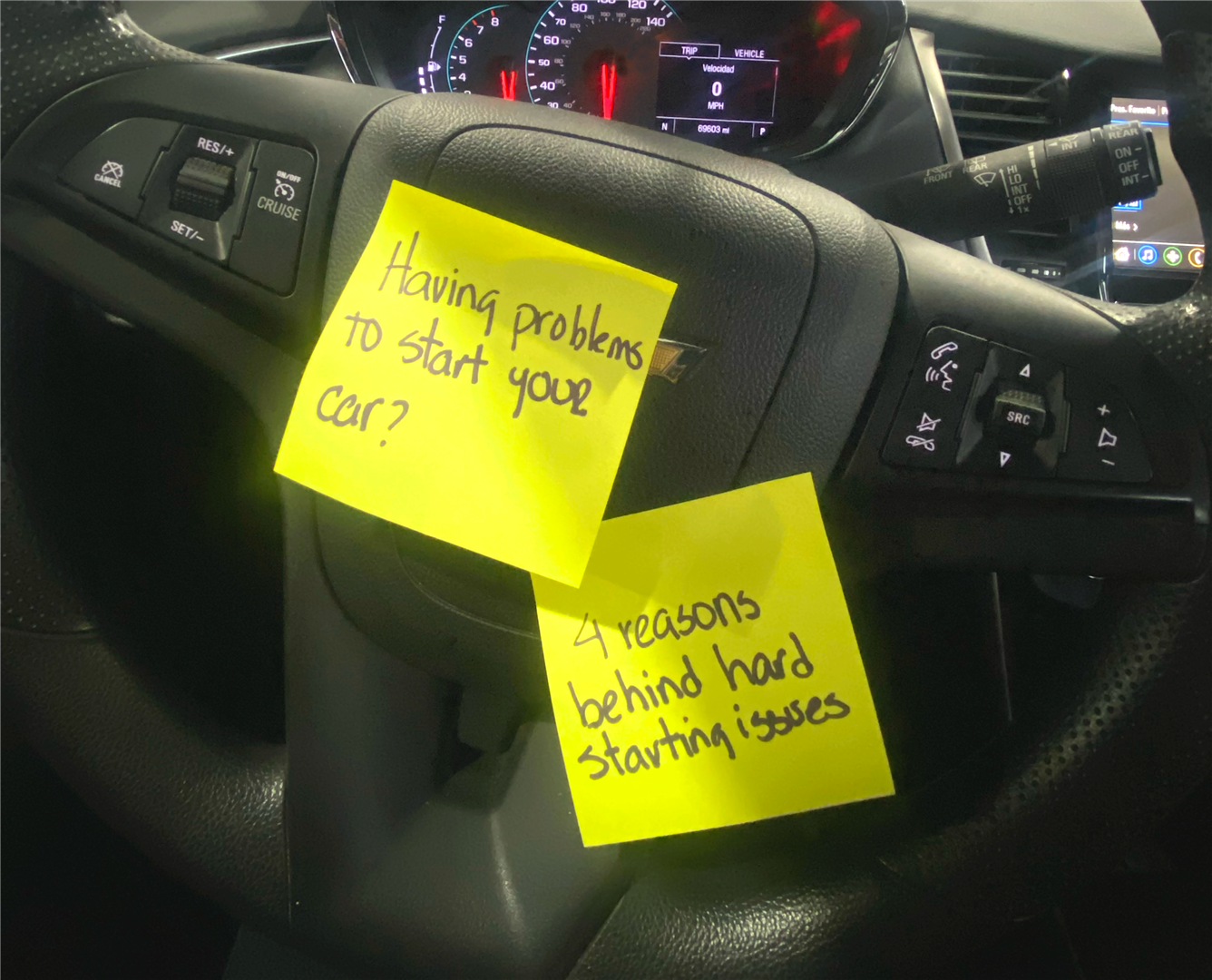
Car hard-to-start problems can be an inconvenient issue for any driver. These occur in the winter season as cold temperatures can affect your car in different ways. Especially, if you park outdoors on a cold night, you may notice the car hard to start in the morning. In this guide, we'll explore some reasons behind hard starting issues. Slow battery Cold weather can affect the battery performance, slowing down the chemical reactions happening in the battery, and making it harder to crank up the engine. This can cause your car to struggle to start. The same issue can occur in the case of a worn-out battery. Fuel System Check the fuel pump's operation by turning the key to the "on" position without starting the engine; you should hear a brief humming sound. Replace clogged fuel filters and consider a professional inspection of the fuel injection system. Ignition System Inspect the condition of spark plugs, ignition coils, and wires. Replace any worn or damaged compo ... read more
Posted on 11/16/2023
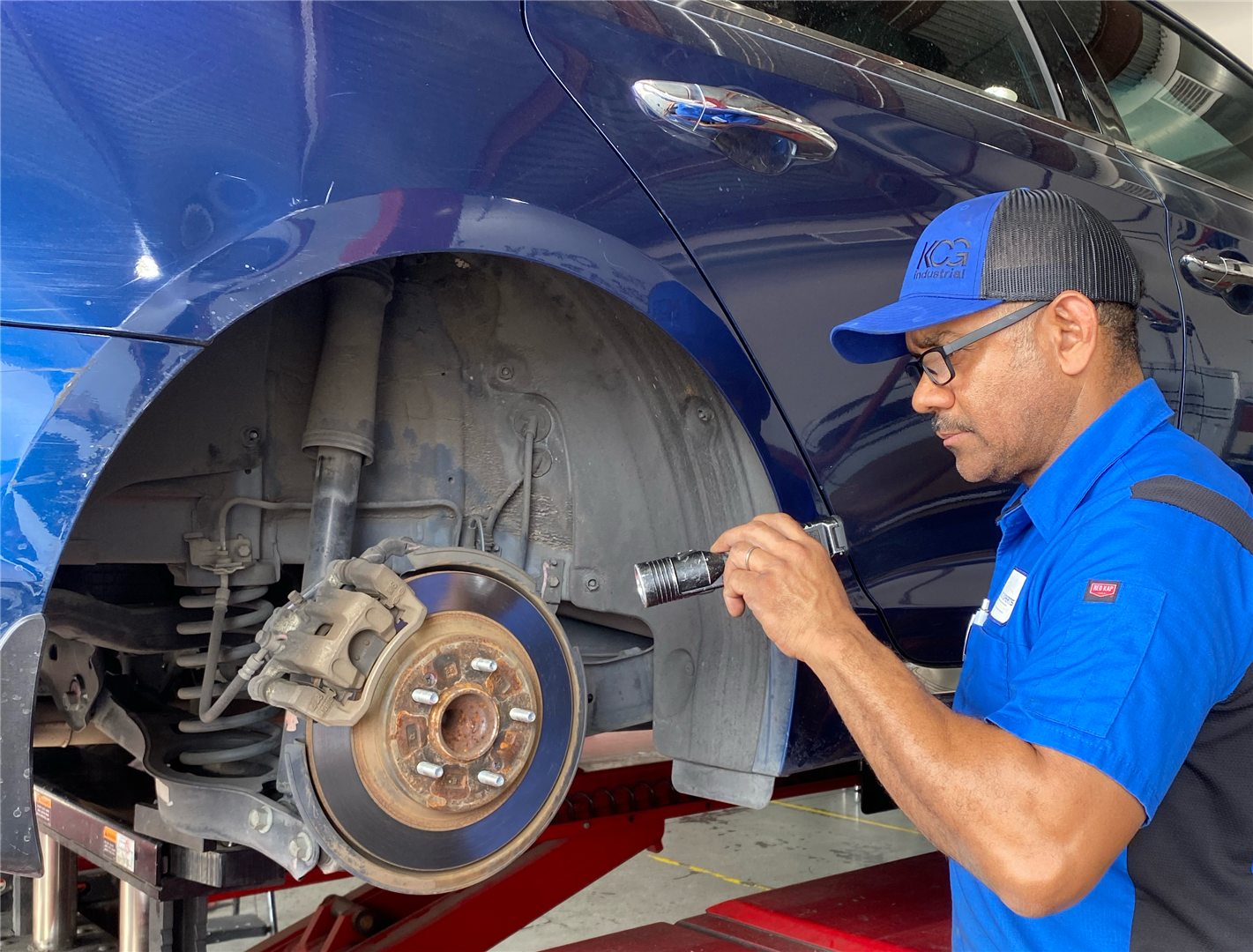
It's one of the most common issues a vehicle can have, don’t worry, we’re here to help you get your car ready and straight to the road. In this blog post, we will show you a few reasons why your car could be shaking when braking. Brake pads that are worn out or damaged This is actually fairly common, because brake pads are supposed to wear down and get replaced. You can also look for signs of damage, such as cracks, splits, or missing chunks of material. Replacing the brake pads is a relatively simple. At Elite Auto Experts we can help you with your Brake Pads and other Automotive needs. A Sticking Brake Calipers The brake calipers are responsible for pressing the brake pad against the rotor, which is caused by brake fluid pumping through the lines when you press the pedal, this can make your brakes calipers sticking or not moving freely, they can cause the brakes to vibrate and shake when applied. Remember to take you ... read more
Posted on 11/8/2023
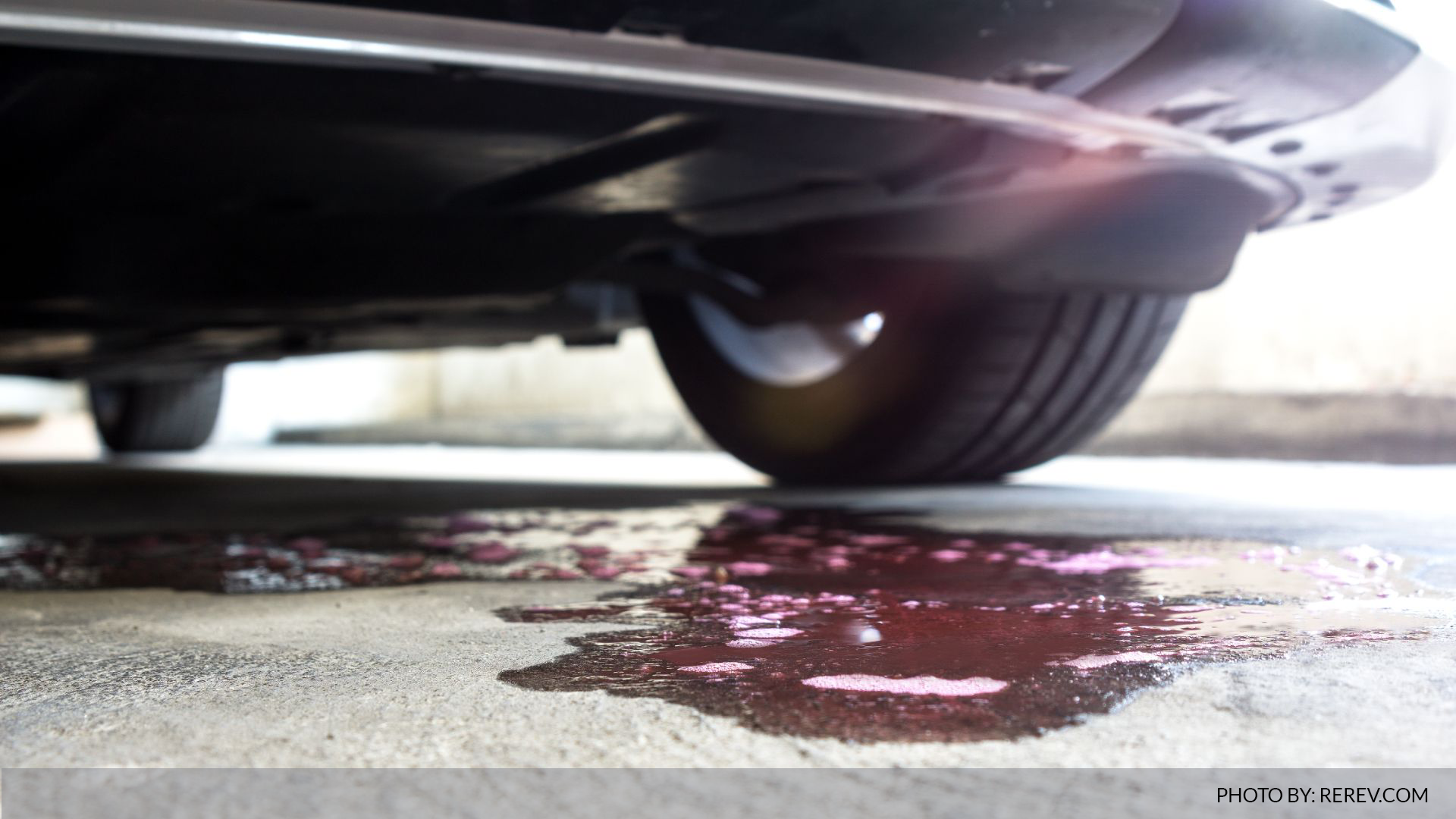
We are sure that more than once you have seen a puddle of liquid in the place where you usually park your car and have asked yourself, what should I do? Here are some helpful tips for identifying common car fluids and the potential source of a leak. Light brown or black fluid: Engine oil If you see an amber, brown, or black liquid under your car is probably engine oil. Oil leaks often come from gaskets or seals in the engine. To prevent this leak from causing any lasting damage to your car take it to your trusted Auto Repair. Red liquid: Transmission fluid This usually means you have a transmission fluid leak on your hands, as it ages, it can turn darker red or brown and typically has a strong smell. Transmission fluid leaks can come from the transmission or the lines going to the radiator or cooler. You can check the fluid levels using the dipstick, but we recommend you get your car towed to your nearest Auto Repair where a Certified Mechanic can take a look at it. Red or br ... read more
Posted on 10/31/2023
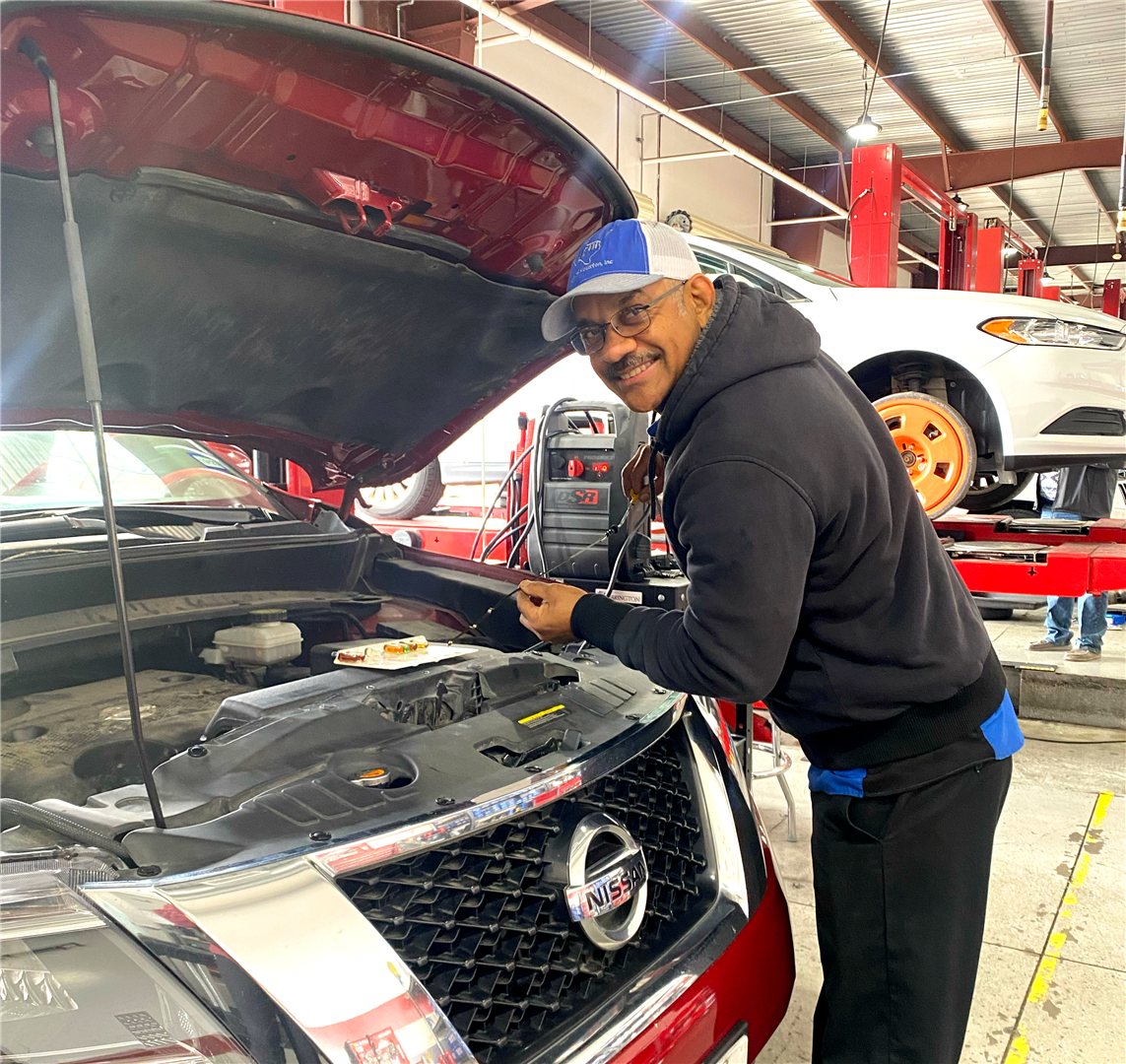
Car maintenance is a regular part of owning a car, but lots of drivers aren't sure when to get it done. Sometimes, they only take their car in for fixing when there's a big problem. We're here to help you spot the signs early, so you can get maintenance before things get really expensive. Here are some vital signs that indicate it's time to schedule a visit to the mechanic: Dashboard Lights: "Check Engine," "Oil Change," or any other warning light is your car's way of getting your attention. Strange Noises: Squealing brakes, grinding noises, or a vibrating steering wheel could indicate brake or wheel issues. Fluid Leaks: Spots under the car mean something's dripping. Whether it's oil, coolant fluid, transmission fluid, or any other fluid, leaks ... read more